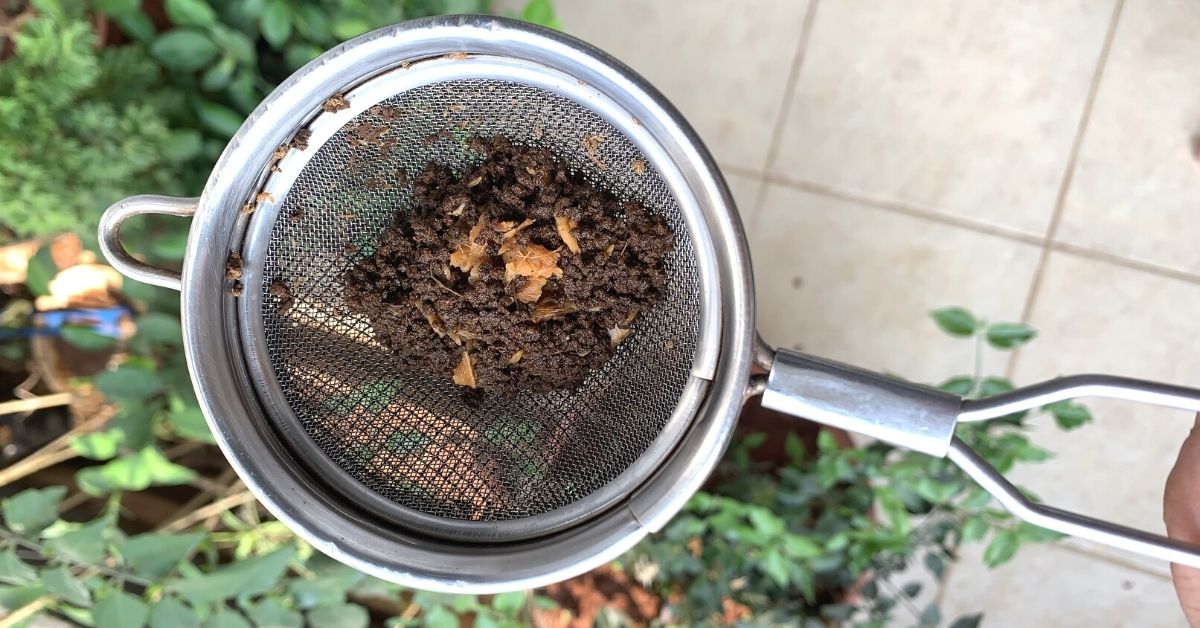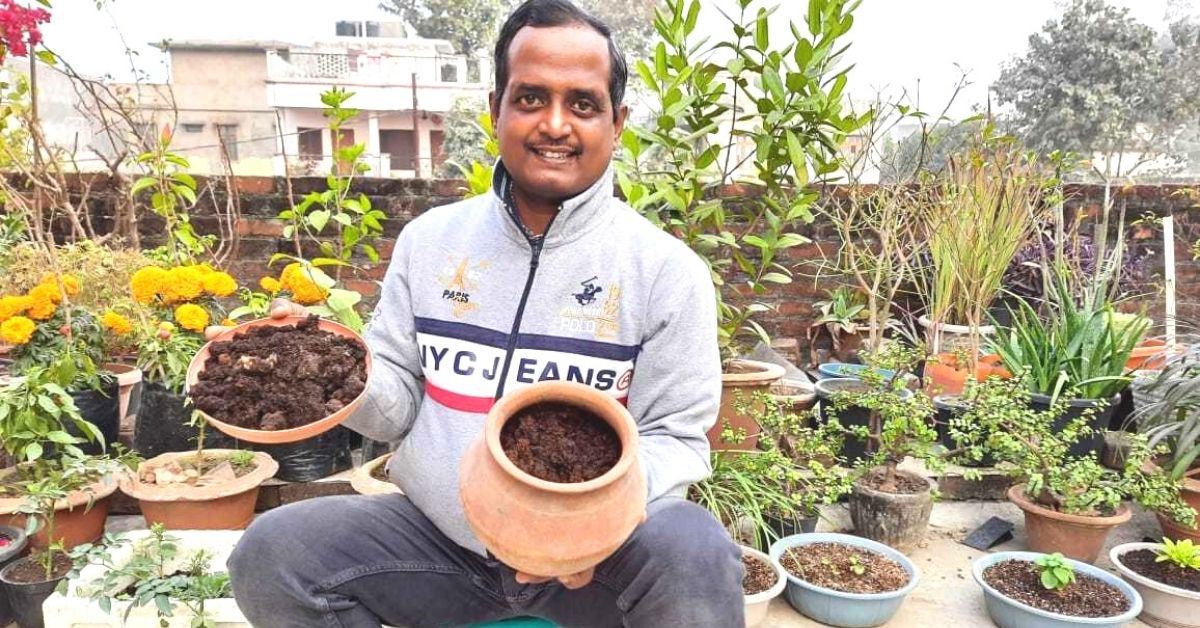Few things are as refreshing as a steaming cup of tea early in the morning, or even after a long and tiring day of work. India’s beloved chai is a part and parcel of casual chats, intense debates, a stolen moment by one’s self, or just something to get us through the day.
The immense consumption of tea also generates thousands of kilos of waste tea powder, most of which is tossed in bins. But Brahmadev Kumar, a resident of Gorakhpur in Uttar Pradesh, says this waste can actually be used as nutrient-rich compost, and if you are a home gardener, this can be akin to gold for your plants.
Tea powder contains 4 per cent nitrogen, along with phosphorus and potassium, as well as other micronutrients that are beneficial for soil. Kumar has been decomposing used tea powder to use as manure for his plants. “There is nothing wrong with used tea powder entering our landfills, because it decomposes easily and will not harm the environment. But why waste it, if plants can benefit from it?” the 48-year-old asks.

Kumar, who runs an urban gardening YouTube channel, says the added nutrients in the soil can almost double the yield of produce. In a conversation with The Better India, he walks us through the process of decomposing the used tea powder.
“There are two ways to make the compost — you can either mix it with other wet waste, or prepare it without doing so. Both processes are equally easy, but the only thing to be careful about in the latter is the method of storage,” he says.
For the process, Kumar says one would need used tea powder, a mud pot, a lid to cover the pot, and a pointed tool to make holes in the utensil.
The process
“The used tea powder often has herbs such as holy basil, ginger, cardamom, and sugar, mixed in with milk. It’s important to wash the tea powder before turning it into compost, in order to avoid bad odour and ants from crawling into the mixture,” Kumar says.
The excess water should be drained from the mixture by pressing it. Then, the mixture should be placed directly in the mud pot. “Mud pots are usually porous and allow airflow inside. However, a couple of holes drilled in the pot can assist ventilation,” he says.
That’s it, Kumar says, adding that the mixture decomposes by itself. “Keep adding used powder every day, and replace the pot once it is full. There’s no need to add water, as the tea powder is moist, and contains the required amount of liquid to assist the process of decomposition,” he says, adding that a good practice is to keep the pot covered at all times to avoid flies.
“Around 30-45 days later, a white layer of fungus becomes visible. It’s a natural process, and there’s no reason to worry. This is just a signal that the process is working,” he says.
It will take about a month to 90 days for the entire process to be completed. “When the powder has completely dried and halved inside the pot, we know the process is complete. The pot should then be exposed to the sun for a couple of days before it’s ready to use. It may further be ground, or can directly be used in the soil,” he says.
Kumar’s step-by-step guide to making used tea powder compost can be found below:
Read more about Brahmadev Kumar and his initiative on The Better India Hindi.
(Edited by Divya Sethu)
If you found our stories insightful, informative, or even just enjoyable, we invite you to consider making a voluntary payment to support the work we do at The Better India. Your contribution helps us continue producing quality content that educates, inspires, and drives positive change.
Choose one of the payment options below for your contribution-
By paying for the stories you value, you directly contribute to sustaining our efforts focused on making a difference in the world. Together, let's ensure that impactful stories continue to be told and shared, enriching lives and communities alike.
Thank you for your support. Here are some frequently asked questions you might find helpful to know why you are contributing?

